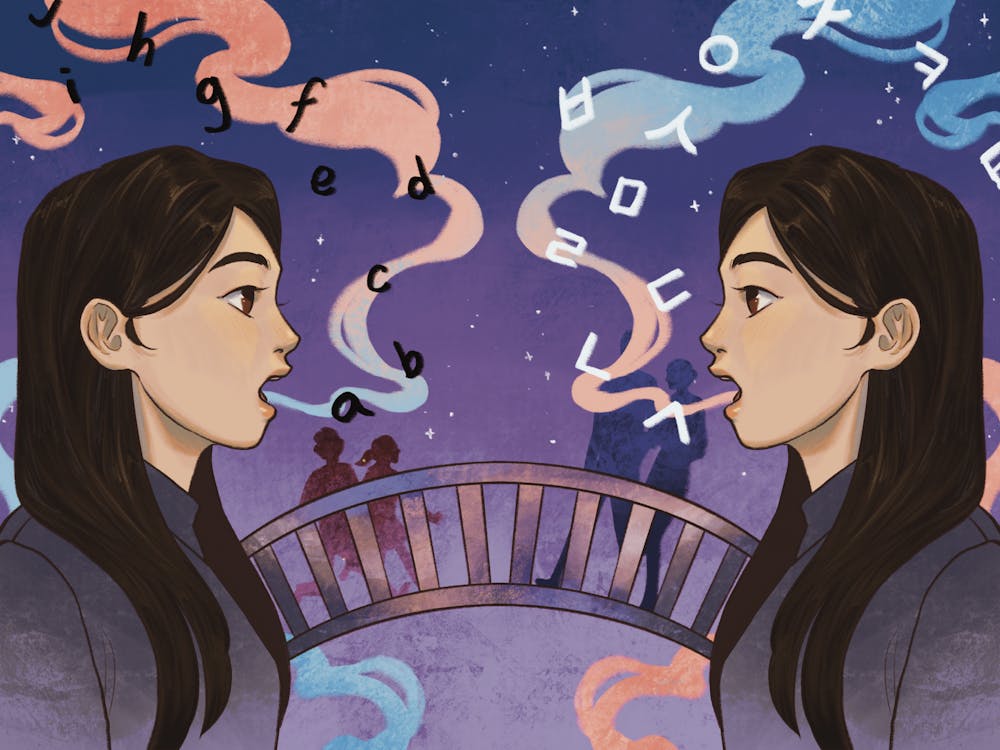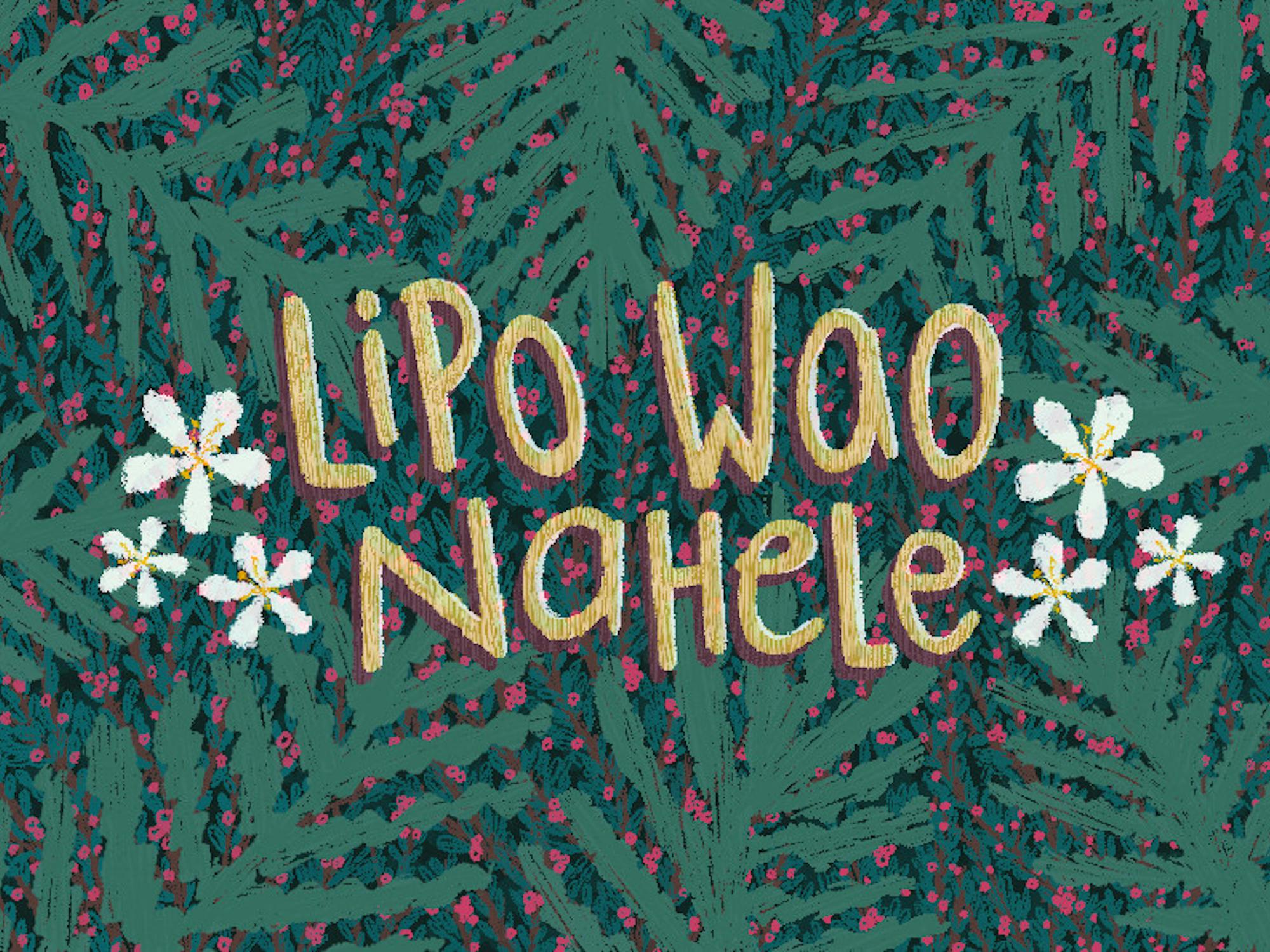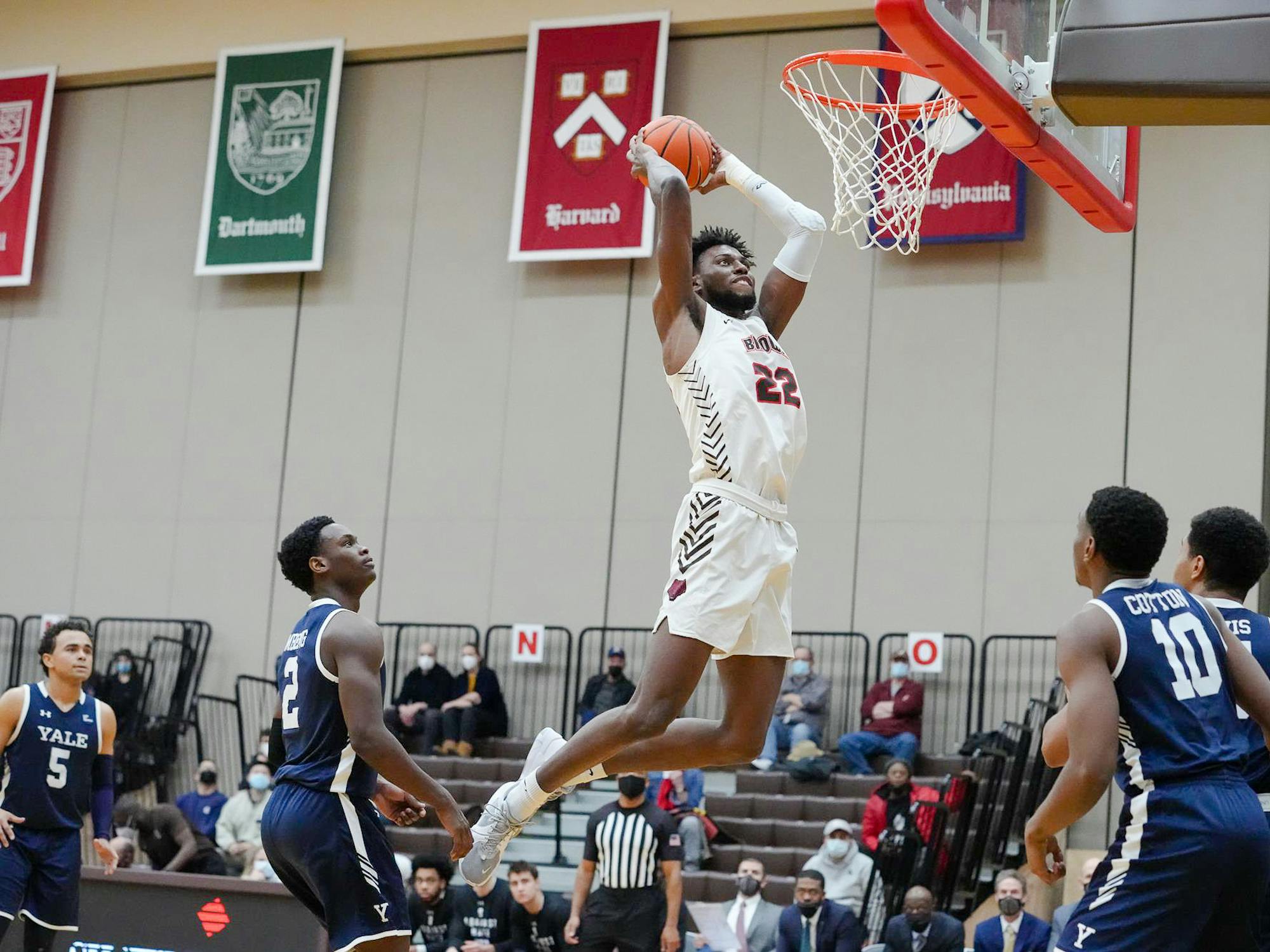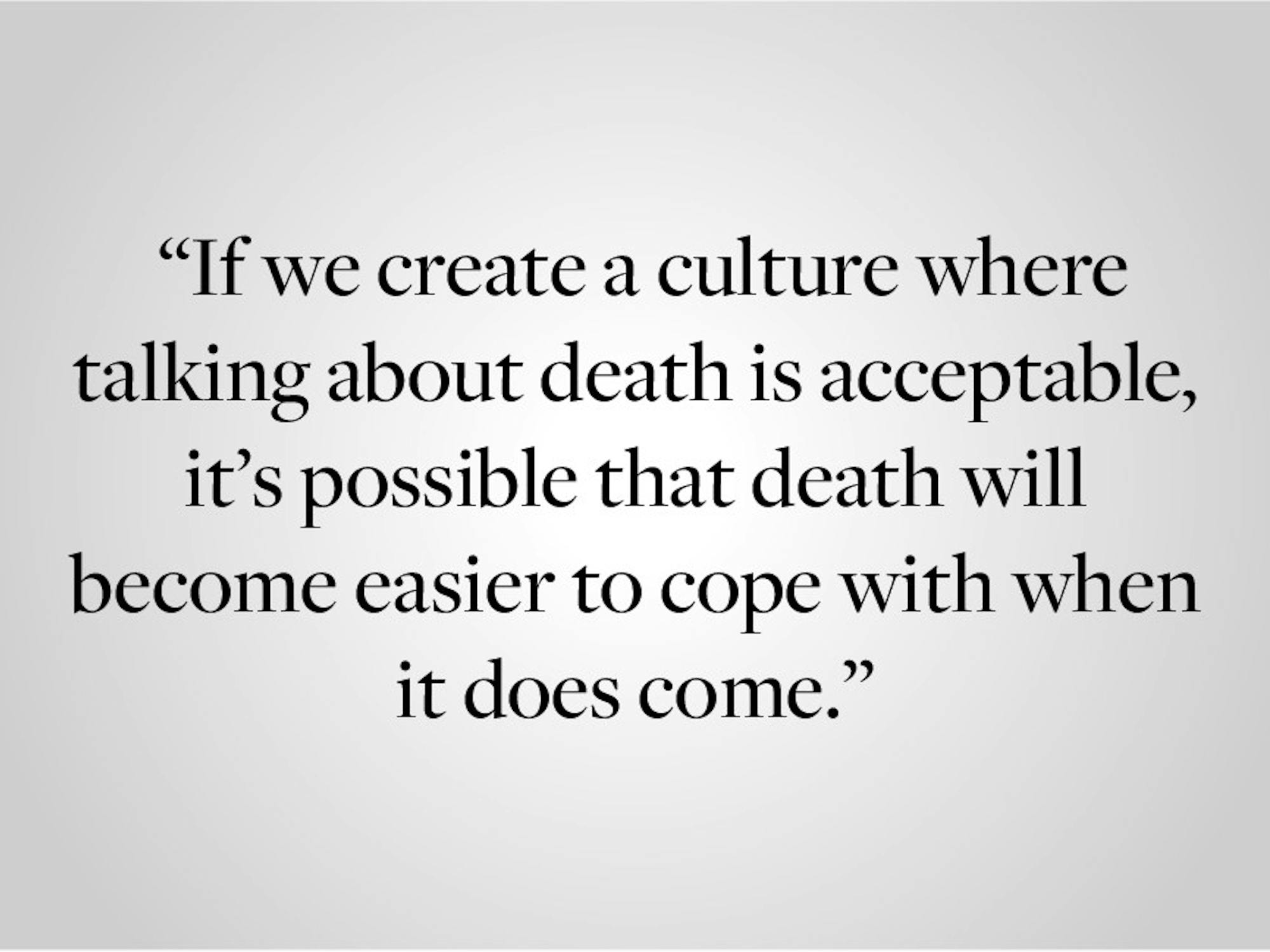Recently, someone told me that I looked “textbook” Korean, which felt a bit unsettling. It wasn't because of any racial shame, but because it has always been difficult for me to embrace this identity. I laughed in response, not knowing how else to reply, and moved on. However, had I been told that just a few years before, I would have torn myself apart, blaming myself for being “too Asian.” Attending predominantly white schools my entire life, I quickly realized the importance of assimilating into American culture. I was luckily not subject to the mocking that many Asian children experience in school, but I hated how Asians were always seen as “nerdy losers” and how they were characterized in the media as the “damsel in distress” stereotype, and I wanted to escape these tropes rather than face them myself. More concretely, I could not find a way to grow up and not let this bother me, as many authors tell us to.
But during my junior year of high school, the COVID-19 pandemic prompted me to reconsider the Asian-American experience in light of heightened racism and violent attacks against the community. With the extra time I gained at home, I spent my days scrolling through news articles and social media posts about aggression against the Asian American community. I grew disturbed by the realities of racism against Asians that I observed across popular media and realized that blatant discrimination still existed, despite not experiencing it myself. It was then that I started to question why the stereotypes attached to Asian Americans—that I had been so determined to defy—existed in the first place. Being Asian used to cause me shame, but once I realized I could never outgrow my identity, something shifted; I began, instead, to lean further into what makes me distinct—being Korean.
I have never thought that my ability to speak Korean was something to be celebrated. When speaking, I was embarrassed of my slight American accent and inability to speak as effortlessly as my friends in Korea did. And while living in L.A., I was embarrassed by the fact that I even spoke another language. I pushed away my “Koreanness'' and tried to conform to the predominantly white society I was steeped in because I did not want to be manacled to the distorted expectations and patterns attached to the definition of being Asian. I avoided the Koreans at my school who joked with each other in broken Korean or those who Google Translated words just so that they could talk to each other in Korean. I always felt relieved at the fact that my parents didn’t give me a middle name based on the romanized version of my Korean name, a pattern I often see in the Korean American community. I felt like I fit into the mold for being American, while others stayed stuck in the past. I looked at Koreans in haughty disdain despite being one myself.
Thus, it is fair to say that I have long wished to obliterate my cultural roots and identity. But the problem is that I still have family living in Korea, a bucket list vacation destination for many. Before I leave, the idea of visiting Seoul makes me feel overwhelmingly excited every time, despite going every year. But after a day in Korea, these feelings dissipate and for the rest of my time there, it is not necessarily the glamorous vacation people envision it to be; it isn’t a vacation at all. It’s a maintenance and enforcement of family and cultural bonds—bonds that I have always rejected. Even if I wanted to connect to these bonds, it would prove to be difficult. Considered “too American” for Korea and with a clear gyopo demeanor (the Korean term for a native Koreans living abroad), it becomes clear that there is a disconnect and barrier when engaging in Korean society. Instead of reconnecting with my roots, therefore, my time in Korea is spent showing off my “Americanness”—as if that’s superior to being simply Korean. My simple conversations in English with my sister turn heads in elevators and relatives direct their attention to our “exoticism,” and I savor that attention.
As an avid reader, it has been difficult to find a poignant and accurate book about the modern Asian American experience, despite the millions of Asians living in the United States. On my persistent hunts down the Barnes and Noble aisles, I kept encountering the same revered classics by Amy Tan and Kazuo Ishiguro. I love their books, but sought a non-fictional take on what it means to truly be Asian in this America.
I don’t often read memoirs, so I don’t know what it was that pulled me to Cathy Park Hong’s collection of essays, “Minor Feelings: As Asian American Reckoning.” But, I found my answer with her. Hong’s work provoked a recollection of painful feelings, and inspired me to look further into my past to assess my present.
When I was younger, I was filled with pride that I attended a predominantly white school where I was one of two Asians out of 66 students in my grade, and that I was living in a white neighborhood where I had no knowledge of other Asians in the community except for an elderly couple. Surprisingly, I didn’t feel left out in either one of those two communities; I felt superior. I felt an unusual pleasure in living in a society where I would encounter almost no Asians. I wasn’t instructed to assimilate. I just did, and felt good about it. But this pressure to assimilate isn’t a phenomenon isolated to my own personal experiences; it’s a feeling that gets woven into the collective and amorphous community we call by many names—Asian, AAPI, Asian American.
Hong observes that many Asians, herself included, have been raised to seek the approval of white institutions—that by not writing about our identities, we keep ourselves invisible, and therefore, can keep the higher, white-dominated institutions happy. Similarly, I hated writing about my Asian American identity, and did not want to join the Asian American friend circle at school. I turned myself away from Korean culture, because I didn’t want to be marked as an identitarian. I never wrote about my Asian identity or even discussed it. I especially hated thinking about it.
Hong’s book painted a brutally accurate and sobering picture of the Asian experience in America, and most importantly, it was the first time an author reminded me of myself: flawed, complex, slightly wounded, willful, fiery. I, too, have felt that competitive hate that Hong senses toward her friends, but also similarly experienced the racial camaraderie that she acknowledges. The former, I’ve realized, is just a deep insecurity that people like Hong and I harbor. This book challenged me to dismantle my own residual feelings of self-hatred, and it’s one I will revisit time and time again, to see if my feelings change as I evolve.
Family doesn’t mean the same thing when it’s spoken by an immigrant tongue. It doesn’t always mean “related by blood,” and even when you are, it doesn’t mean that you’re necessarily “family.” As the oldest daughter of Korean immigrant parents, I have been burdened with the lifelong responsibility of acting as a cultural bridge. Sometimes I have to introduce new perspectives to my traditional parents, and other times I have to negotiate for or defend my younger siblings, who are caught in a similar racial and identity-related paradox (I just happened to have to go through it first). I sometimes have to force my parents to see things from a more cosmopolitan perspective, rather than leaving them to see the world as they did back in their homogenous country, and pressure them to come out of their orthodox thinking. Being an interpreter is a role that is undoubtedly expected of me, and while it is not necessarily a burden for me, it may be a difficult responsibility for others. Truthfully, it’s hard to be this bridge. Sometimes I feel like my engineering was faulty, like the foundational plans were formed incorrectly before my structure was set. Having to navigate cultural differences and multifaceted identity crises from such a young age is one that I have grown accustomed to, but one that I have always wished to escape. California State University, Monterey Bay Professor Rob Weissskirch said that many children of immigrant families are language brokering for their parents and other relatives. While being a language broker for others may be psychologically tolling, Weisskrich reveals that it may lead to the development of empathy.
When I feel my parents’ feet cross my path, and the soft pitter-patter of my younger siblings behind them, I feel overwhelmingly happy, like I have something of value to share with them, like I am someone who is making a real change, even though it’s just in the humble space of my five-person family unit. So I’ve concluded that I fall into the latter half of Weisskrich’s study—that contributing to family is associated with self-efficacy.
With that empathic mindset, I steeped myself into the bigger, more diverse student body that made up college communities. The ability to engage with people from all walks of life, who would bring with them their unique viewpoints, felt like a rare opportunity, especially at such a crucial time in my intellectual development. By realizing that the Korean Americans I so shunned in high school possibly carried similar burdens and experiences as I did in an immigrant family, I was ready to immerse myself in their circle. I came ready to learn more about my culture that I had so longed to get rid of, leading to more nuanced, intersectional, and progressive dialogues. Since coming to college, I’ve joined cultural organizations and engaged in deep conversations with fellow Korean Americans, and most importantly, have become more open about my insecurities by writing about them, just like I am now. Sometimes, I am still afraid that I will feel called out in these communities—that the experiences and feelings others share, uncannily mirror my own, reminding me of my own struggles of acceptance with my identity. But at the same time, I am comforted by the fact that there is a whole community that can understand my internalized dilemma. And also that this group of people would have no criticisms over the pungent, shrimp-tinged scent of months-long fermented kimchi.
As I grew older and began to open myself up to the multiple perspectives of the world, I grew to understand how speaking Korean natively is a unique asset that many Korean Americans surprisingly don’t have. I have found it easier to connect and interact with Korean culture and people without having to look at a dictionary every few words. Being able to harness another language was not an embarrassment; it provided an ability for me to look at the world from two vastly different perspectives, a gift that blesses me daily. I’ve grown to accept these two identities as not completely extricable.
And I’ve realized that this is what education is for: to take the things we held as insecurities as children and to transform them into powerful tools for societal change. Now, I know how to step back and think rationally. I define my beliefs based on personal experiences and knowledge rather than by those of others. So, what is a Korean American to me? I still have years of exploration and assessment before I can comfortably call myself one of my community’s biggest allies and fully define what that label means to me, but Hong’s work helped propel that movement as she reminded me that my “Asian-ness” is not something to reject; it is something to recognize, celebrate, and own. In the future, I hope to find others with whom to redefine the meaning of what and who family is—in my mind, it’s the people I’d invite to cross my bridge.





